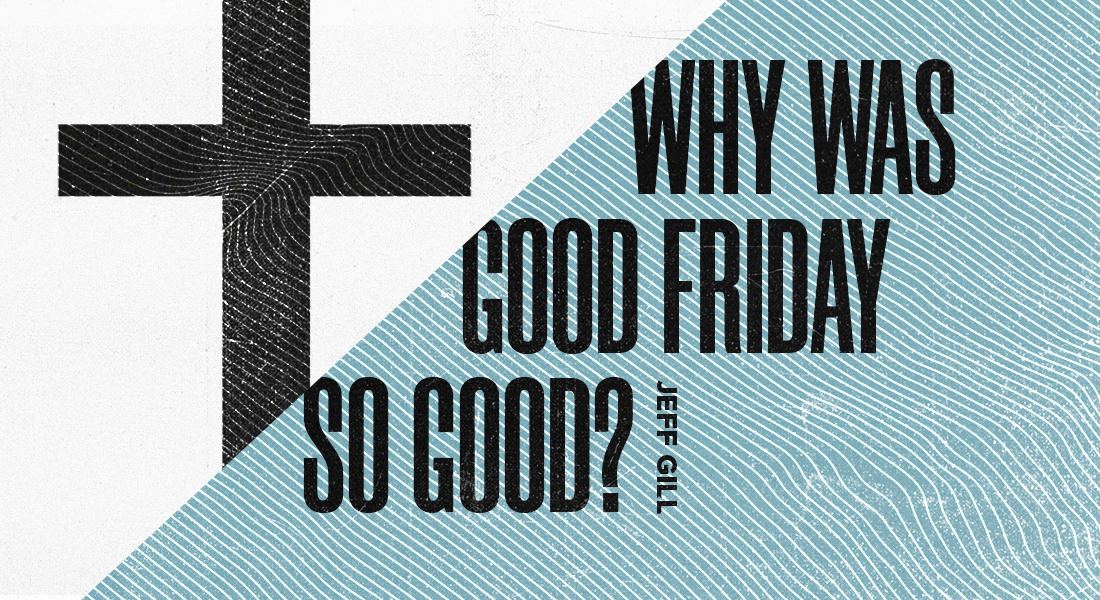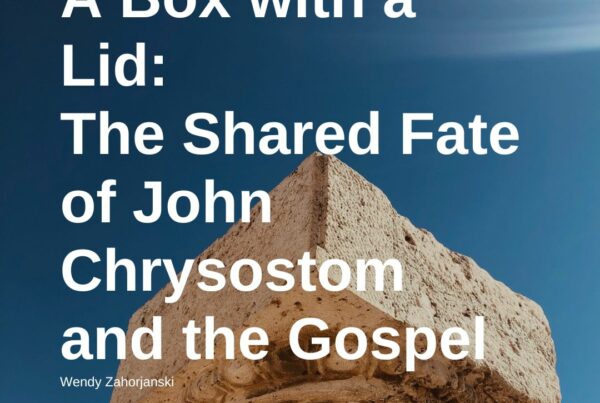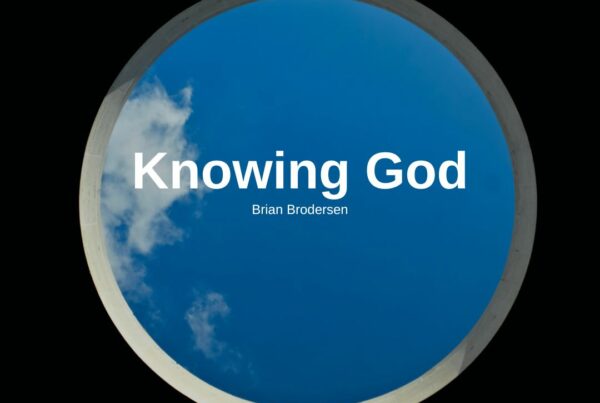
“For Christ also died for sins once for all, the just for the unjust, in order that He might bring us to God, having been put to death in the flesh, but made alive in the spirit For Christ also died for sins once for all, the just for the unjust, in order that He might bring us to God, having been put to death in the flesh, but made alive in the spirit” (1 Peter 3:18).
Good Friday is a time when we remember the pain of the Lord on our behalf.
Indeed, Jesus suffered and died for us.
Have you ever tried to comprehend the feelings of the apostles and other followers of Jesus as they watched their Lord die on a cross so many years ago? Everything the followers of Christ had hoped for seemed to have been snatched from their hands in the space of a few hours. The apostles must have felt panic, fear, dismay, anger, hopelessness.
Perhaps they felt shame as they thought of going home and telling people that the Messiah, they gave up everything to follow, had just died on a cross—leaving them looking like hapless fools. I can only speculate how they felt. I doubt they were rejoicing though.
With all the pain they must have felt at watching their Lord die, I have often wondered what was so good about Good Friday.
Without the tragedy of the cross, there would be no hope for any of us.
The tragedy we remember on Good Friday is, in fact, the greatest victory in the history of mankind.
WHAT’S SO GOOD ABOUT GOOD FRIDAY?
When you think about it, the terminology we’ve used over the past centuries seems a little out of place. We are here to remember and to consider the death of Christ. Naturally, our minds wander back 2,000 years to another time and another place. Jerusalem. People gathered from all over the world to celebrate the Passover, and outside the walls of the city, the Passover Lamb hanging in public shame upon a cross.
All four Gospels are really rather matter of fact about the death of Christ. They each relate the historical events, and they each refrain from giving very much in the way of commentary as they describe those events. What commentary they do give comes from the lips of those who are present. The inscription over His cross proclaims Him to be the King of the Jews (John 19:19).
It points out that this Galilean rabbi was much more than just a King—- He was the one and future promised King who was, and who is, and who is to come—Alpha and Omega.
One of the thieves commented that “we are receiving what we deserve for our deeds; but this man has done nothing wrong” (Luke 23:41). This points to the fact that Jesus died as an innocent sacrifice for the wrongs of others.
1. CHRIST DIED FOR SIN.
“For Christ also died for sins”(1 Peter 3:18)—He had none!
The death of Christ had both a very terrible, and at the same time, a very wonderful purpose. It was terrible in that it teaches us that our sin is quite terrible. It is wonderful in that it teaches us that God’s love is quite wonderful.
He died for sins in the sense that His death was PENAL. God’s law demanded punishment for sin. The death of Jesus was the answer to that demand—not on Him, on you and me! His death was a punishment for our sin—price paid–debt erased.
In the ancient world, it was customary that when a criminal was crucified, a list of his infractions that had led to his crucifixion would be nailed to his cross. The idea was that anyone who was contemplating committing the same crime would read this list and be warned. You know all about the inscription that Pilate had affixed to the cross of Jesus.
And an inscription also was written over Him in letters of Greek, Latin and Hebrew (Luke 23:38).
THIS IS THE KING OF THE JEWS.
But there was another inscription that day that was unseen by human eyes.
“And when you were dead in your transgressions and the uncircumcision of your flesh, He made you alive together with Him, having forgiven us all our transgressions, having canceled out the certificate of debt consisting of decrees against us and which was hostile to us; and He has taken it out of the way, having nailed it to the cross” (Colossians 2:13-14).
Can you imagine what it would be like if someone were to follow you around and write down everything that you did, unbeknownst to you?
Every evil action, every improper thought, every wrong motive? It isn’t mere imagination.
There was a certificate of debt that we owed. It consisted of all the things that we had done wrong or that we would one day do wrong — after all, at the time of the cross, all of your actions and my actions were still future tense.
It consisted of our actions, our thoughts and our motivations. Everything that would cause us to hang our heads in shame before a holy and righteous God.
Nailed to the cross.
It isn’t that we weren’t guilty—We were and still are. But the penalty has been paid. The demands of the law have been met. He died for sins in the sense that His death was PRIESTLY. In Old Testament times, the people had to approach God on the basis of animal sacrifice. The regulations for worship were quite specific. For you to worship, death had to take place. And that was not all. Even after the sacrifice was offered, it did not mean that you could blissfully walk into the presence of God. You had to go through a mediator. You went to the priest, and he went into the presence of God.
2. CHRIST DIED FOR SIN ONCE–FOR ALL.
“For Christ also died for sins once for all” (1 Peter 3:18).
We come to the cross again and again, and that is perfectly appropriate. But the death of Christ was a once and for all event.
And as Jesus breathed His last, the veil in the Temple was torn in two– from heaven to earth—top to bottom—no man could make a way only God dying for our sin—heaven to earth (Mark 15:37-38).
That great veil, that had for so long a time stood for the separation that existed between God and men, was torn in two from top to bottom.
No more sacrifices. No more blood. No more animals to be slaughtered. The work was done. It was a once and for all event. It need never be repeated. In those times, when we’ve played the part of the lost sheep and have wandered away, we come to our senses and we wonder, “How can I ever make it right? How can I return and have the relationship I once enjoyed.”
It is at those times that He comes, and He says, “I died for sin once and for all. All anger has been satisfied once and for all. No other sacrifice is needed for you, Jeff.”
3. CHRIST’S DEATH INVOLVED THE JUST FOR THE UNJUST.
“For Christ also died for sins once for all, the just for the unjust…”
Christ died our death. He who was innocent died in the place of we who were guilty. The death of Christ is a measure of our sinfulness. We have a tendency to downplay sin. It is a sign of our day and age that we don’t even like to talk about sin. Or else sin is relegated to the murderous actions of third world terrorists and since “I would never do a thing like that,” I can assuage my own brand of sins with the thought, “It really isn’t that bad.”
Now hear this—Your sin is really bad, and my sin is really bad. So bad that it took the death of the holy and righteous and just Son of God to put it away. He is the —–JUST ONE of our verse.
We read that He: “died for sins once for all, the just for the unjust” (1 Peter 3:18).
This is the same truth that Paul expresses when he says:
“He made Him who knew no sin to be sin on our behalf, that we might become the righteousness of God in Him” (2 Corinthians 5:21).
Jesus is the just one who took upon Himself your injustice. He became sin on your behalf.
We have been credited with the righteousness of Christ. He is infinitely righteous. He has not merely imputed a portion of His righteousness to our account. Rather, the very nature of His character of complete righteousness has been credited to us. We are regarded by God as having the very righteousness of Christ.
Remember——what He did that day.
The seven last sayings of Jesus from the Cross:
1. Luke 23:32-34 The Perfect Prayer:
“Father forgive them; for they know not what they do.”–Perfect forgiveness
2. Luke 23:32-43 Eternal Life Today:
“Today you shall be with Me in Paradise”–Eternal life
3. John 19:26-27 Substituting for the Substitute:
“Woman, behold, your son!”–A new family
4. Matthew 27:46:
My God! My God! Why? “My God, my God, why have you forsaken Me?”–Penalty paid
5. John 19:28-29:
“I Thirst; I Thirst.”–We’ll never be thirsty again
6. John 19:30 FINISHED!
“It is finished!”–Completed His mission
7. Luke 23:46:
“Father into Thy hands I commend my spirit.”–Made heaven our home!
Do you know Him?






